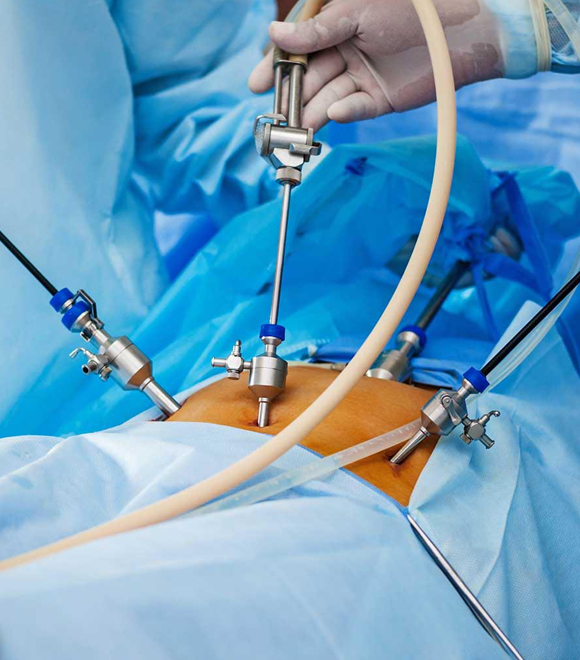
Laparoscopic Surgery For Women
Laparoscopic Surgery For Women
- Any disorders in the reproductive organs, right from the uterus, the tubes and the ovaries can be treated by laparoscopic surgery.
- Uterine fibroids can be treated by laparoscopic myomectomy which has the advantage of preserving the uterus too.
- Ovarian cysts can also be treated by laparoscopic surgeries.
- Even early stage cancers in reproductive organs can be treated by laparoscopic surgery . This requires expert hands and hence a guidance of a professional is needed .
Laparoscopic surgeries have smaller incision, reduced blood loss, shorter hospital stay , faster recovery and decreased post operative pain .
Laparoscopy Treatments For Infertility
This procedure is performed to evaluate the pelvic organs and identify any abnormalities that may be causing infertility. The laparoscope allows the surgeon to examine the uterus, fallopian tubes, ovaries and surrounding structures for conditions such as endometriosis, pelvic adhesions, ovarian cysts, fibroids or tubal blockages.
Laparoscopic surgery is commonly used to diagnose and treat endometriosis, a condition where the tissue lining the uterus grows outside of it.In women suffering from endometriosis, the uterus, the tubes, the ovaries, all get stuck up together in many cases. So, normal functioning is affected. By releasing the adhesions between them through laparoscopy, they get back to their normal functioning and again enhance the chances of fertilization.
If an ovarian cyst is suspected to be affecting fertility, a laparoscopic cystectomy may be performed. The surgeon removes the cyst while preserving as much healthy ovarian tissue as possible to optimize future fertility.
In cases where the fallopian tubes are blocked or damaged, laparoscopy can be used to perform tubal surgery. The surgeon may attempt to open blocked tubes, remove scar tissue or adhesions or repair damaged portions of the fallopian tubes to improve their function.
Within the uterus, first of all, if there are uterine fibroids where embryo needs to be implanted or where the baby has to fix itself, it needs to be corrected using endoscopic procedures.This procedure aims to improve fertility by creating a more favorable environment for embryo implantation.
Sometimes, the uterus itself may be abnormally shaped, or it may be a bi-cornuate uterus. It may not allow a woman to conceive. It may also be a septum, i.e. a division within the uterine walls that hinders a pregnancy or even leads to miscarriage. So, to remove this, endoscopy is done to help women conceive.
Laparoscopic surgery offers several advantages over traditional open surgery, including smaller incisions, reduced postoperative pain, faster recovery and shorter hospital stays. However, the specific surgical approach depends on the individual’s condition and should be discussed with a fertility specialist or gynecologic surgeon. They can assess your situation, provide appropriate recommendations and guide you through the surgical process.
We strive to deliver personalized care tailored to individual needs. Your health and well-being are our top priorities. And we are here to support you in every way.





